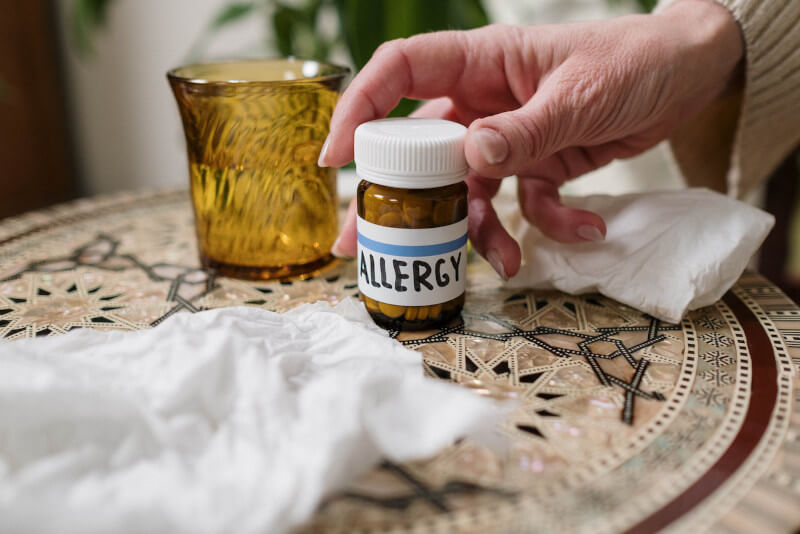Which city in South Africa would be best if you suffer from seasonal allergy symptoms like itchy eyes and a stuffy nose? There is no simple response to this inquiry, but we can dissect some of the truths and urban legends surrounding different seasons of allergic rhinitis to get a better understanding.
Find Out What’s Causing Your Allergies
Your allergies’ root cause could be a mystery and your doctor will be able to detect your allergy premised on your history of symptoms and any outward manifestations they find during a physical exam. Your doctor may also suggest keeping a diary to track any reactions you have to foods. To narrow down the potential allergens, your doctor may suggest a skin test or blood test.
Pollen assessed in each city over a year is added together to facilitate comparisons between them. This number is referred to as the Annual Pollen Index, and it is used to make direct comparisons between different areas. Although it might make sense to relocate to an area with a reduced Pollen Index, doing so might not solve the problem if there are allergenic plants nearby that are difficult to eradicate, such as in a neighbour’s garden. So, what can a person who experiences seasonal allergies do to alleviate their symptoms?
Recognise Your Stressors
It is much more prudent to schedule an appointment with an allergist who might take a detailed history of your symptomatology and organize skin or blood allergy assessments rather than enduring the disruption of relocating to a new area. The testing will reveal which pollens cause your hay fever, rhinitis, or conjunctivitis, and then you can treat your side effects with a non-sedating allergy medication, nasal sprays, and decongestants.
You Should Get Ready for the Upcoming Pollen Season
Since 2019, Prof Jonny Peter of the Lung Institute at UCT and his group of aerobiologists and palynologists at campuses all over the country have indeed been monitoring pollen in the atmosphere of seven cities in South Africa. These cities’ pollen counts are measured daily by the South African Pollen Network (SAPNET), with weekly updates.
Their social media profiles feature helpful information for those who suffer from pollen allergies, such as advice on how to deal with seasonal allergy symptoms or the importance of always having an allergy first aid kit on hand. The pollen scores, tree pollen sums, and grass pollen counts have all been added up, and the resulting rankings have been assigned to the cities. Seasonal symptoms are typically brought on by wind-pollinated plants, but not every pollen is allergenic.
While tree pollen may be released at any time of the year, it is most abundant in the late winter or early spring. The grassing period in warm SA is more prolonged than in numerous countries with very poor winter temperatures because grasses discharge thousands of tiny pollen granules that are quickly inhaled. By keeping track of these numbers and keeping an eye out for flowering plants in your area from late winter to late summer, you may be able to pinpoint unusual allergens that are missed by standard allergy tests.
Visitors to South African Cities Should Be Aware of the Varying Pollen Seasons
Even though allergenic pollen seasons vary between cities in South Africa, business travelers, and vacationers must keep an eye on the pollen website. The cities under surveillance are located in a wide range of climate and vegetation zones. For example, Cape Town is located in a winter precipitation region, which means that grasses grow and blossom after the rainy season, and the maximum grass counts are observed in October.
However, all of the other mentioned cities are located in warmer months’ annual rainfall locations, which means that the grass season takes place later, sometimes reaching a climax as late as January. You should plan if either you or your relatives are susceptible to garden pollen and plan to travel throughout South Africa during the different grass pollen seasons.
Advice for People with Seasonal Allergies

- Don’t forget to close the windows in your car and house.
- Select succulents as houseplants and steer clear of those that may cause allergies.
- Use a mask and nasal snifters while you mow the grass.
- Don’t dry your clothes outside during peak pollen times.
- To avoid breathing in pollen while exercising, avoid coastlines during spring.
You can notify others of the fact that you require medical assistance in the event of an allergic reaction by wearing a medical alert wristband or necklace if your allergy is severe enough to cause life-threatening symptoms or anaphylaxis. Another option is to always have a medical ID on you.
Make your home allergy-free by eliminating dust and mold and washing all bedding and fabrics in hot water to kill dust mites and other allergens. As an additional measure, installing high-efficiency particulate air (HEPA) or other similar air filters can help remove allergens from the air in your home. Taking down drapes and carpets and clearing out unnecessary furniture can also help reduce dust and make cleaning a breeze. According to GreeDirect, replacing or cleaning old air-conditioning filters will also ensure that the air entering your home is clean and fresh.
Maintain a healthy lifestyle by avoiding exposure to common allergens like cigarette smoke and pollution. If you want help quitting smoking, your doctor can provide it.
In addition to eating well, sleeping well, and dealing with stress, a regular exercise routine can help you maintain a healthy weight. It has been shown that being under a lot of stress can trigger allergic reactions and make existing symptoms worse.
Eating a diet high in vitamin and mineral-rich fruits and vegetables is also essential. Certain studies suggest that addition in young life may avoid the onset of certain allergies in children. Vitamin C is a natural antihistamine, and there is mounting proof that zinc and vitamin D play a defensive function against establishing atopic disease.

